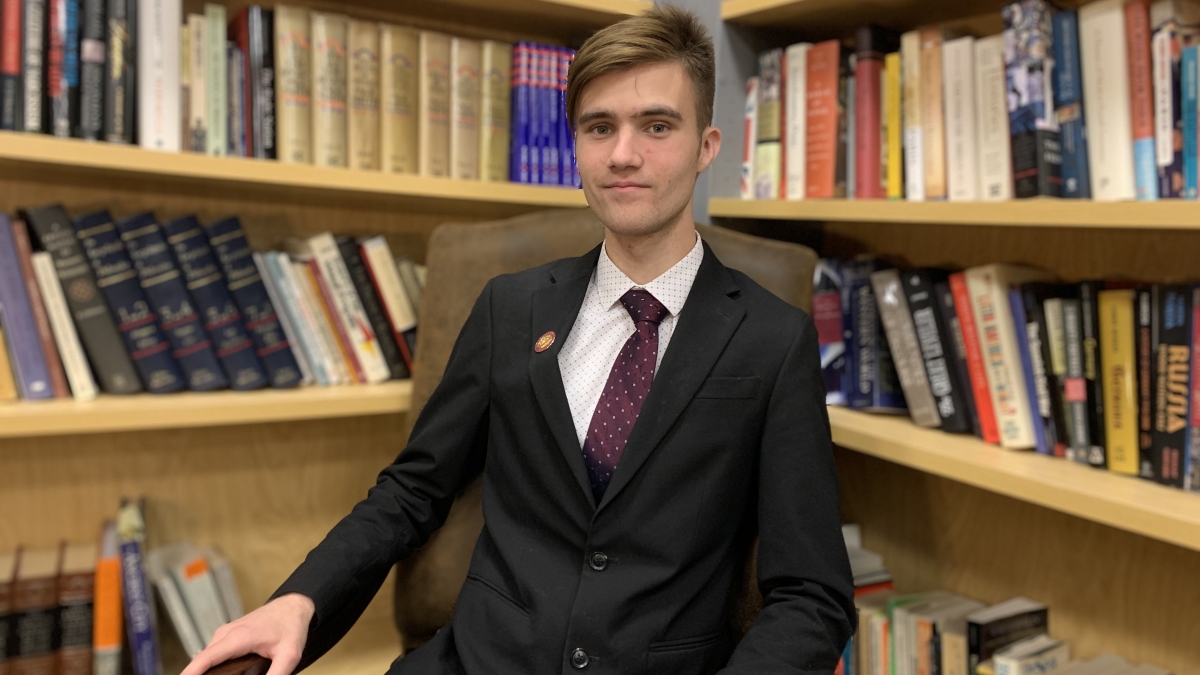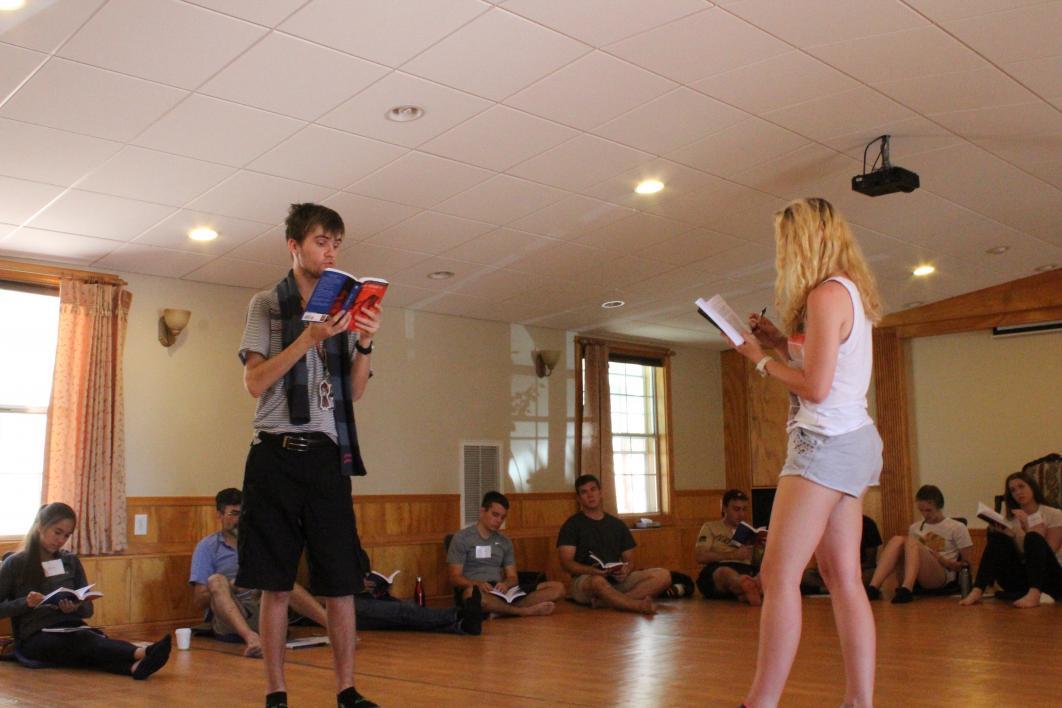SCETL, economics double major aims high

ASU graduate Jonah McCoy is a double major in civic and economic thought and leadership and in economics. He aims at winning prestigious Leo Strauss Award.
Editor's note: This story is part of a series of profiles of notable spring 2022 graduates.
Jonah McCoy is not shy about his academic achievements and career goals.
“I seek to become a peer with my mentors,” he said.
The Arizona State University graduate — an early adopter of the School of Civic and Economic Thought and Leadership (SCETL) program — is confident about his future. In the fall of 2022, Jonah will start his PhD in political philosophy at the University of Houston, a well-deserved recognition of his academic skills.
“Jonah's talent and commitment to the life of the mind were immediately apparent to all of us in those early days of SCETL, when Jonah was one of our first majors,” said Assistant Professor Karen Taliaferro, adding, “I have come to see how exceptional he is not only in his intelligence but in his determination and perseverance. Beyond this, he is a fundamentally kindhearted person.”
Born in Fresno, California, Jonah moved with his family to Nogales, Arizona, when he was in second grade. He says he knew at an early age that he would follow an academic career, and in 2017 he joined ASU’s Barrett, The Honors College as an economics major, but his path took a slight turn in the fall of that year.
Question: How did you learn about SCETL?
Answer: I walked by a flyer on campus promoting the Civic Discourse Project lecture series on “Free Speech and Intellectual Diversity,” and I started attending the events. Then in the following summer, I enrolled in SCETL’s Summer Leadership Seminar “Shakespeare's Leadership Lessons” in Sedona, and it was delightful. That week, I met phenomenal people, including Cameron Vega and Robert Bartlemay, among others. That experience pushed me to enroll in CEL 100 with Professor Karen Taliaferro, who became a prominent figure in my life. Then came a course on religion with Professor Paul Carrese, and when I realized I was getting a major in civic and economic thought and leadership. One realizes one is in the right place. Things happen for a reason.

Jonah McCoy reads aloud from Shakespeare's "Henry V" during the School of Civic and Economic Thought and Leadership's summer 2018 course in Sedona, Arizona.
Q: Which course was your favorite?
A: I can’t say there was a SCETL course that wasn’t phenomenal.
Q: What makes SCETL so special?
A: It’s a community of like-minded individuals. We are all interested in these important topics in a department that encourages free and open debate. We are free to disagree and discuss everything. At SCETL, I have never met slouchers. Every student at the school is a mover and shaker. Everyone goes on to do big things, to become student body presidents, top-level students participating in big projects that matter, and so on. Ultimately, it’s the quality of students. SCETL doesn’t attract mediocrity. They are all bright, genuinely phenomenal individuals, and do amazing things. SCETL people think big and have big dreams. It comes from the faculty. They are all intentionally here to provide an education, not just a degree.
Q: How did your peers push you forward?
A: At SCETL, one can’t be intellectually complacent because one is surrounded by great thinkers. The debates we engage with at the school challenge you, and you will be called out if you say nonsensical claims. This community of thinkers encourages you to substantiate yourself.
Q: Did you ever think you would pursue a career in classical education?
A: My understanding at the time was that classical education was in full retreat across the country when I came in. And today I am who I am, and I am going where I am going because of SCETL’s faculty. I will receive a doctorate degree fully funded from the University of Houston, and I am grateful to Professor Michael Zuckert, who identified in me the potential to do it. He found a place that is amicable to me and went out of his way to help find a good fit for me.
Q: What is your goal?
A: I want to teach at a place like SCETL. It’s the only thing I see myself doing: teaching at a place like this, surrounding myself with pupils and seeking truth through dialogue and inquiry.
Q: What would you say to an incoming SCETL student?
A: Embrace this small, phenomenal community. Go to the events, become the spirit of it. Making connections with your peers is one of the most important parts of this education. It’s a fantastic cohort.
Q: What is your favorite part about SCETL?
A: The faculty. If SCETL didn’t believe in the education it offers, it could not be what it is, and students would not go as far as they go.
Q: What is the biggest takeaway from your experience as a SCETL major?
A: The absolute beauty of political philosophy, which led me to become a Tocqueville scholar.
Q: What is your bedside-table favorite Tocqueville book?
A: “The Ancient Regime.” It’s his most important book, in my opinion.
Q: What comes after your doctorate degree?
A: That’s easy. The Leo Strauss Award from the American Political Philosophy Association for my dissertation. I am interested in breaking trends and going off to do something new with bold ideas.
More Law, journalism and politics
Can elections results be counted quickly yet reliably?
Election results that are released as quickly as the public demands but are reliable enough to earn wide acceptance may not…
Spring break trip to Hawaiʻi provides insight into Indigenous law
A group of Arizona State University law students spent a week in Hawaiʻi for spring break. And while they did take in some of the…

LA journalists and officials gather to connect and salute fire coverage
Recognition of Los Angeles-area media coverage of the region’s January wildfires was the primary message as hundreds gathered at…

